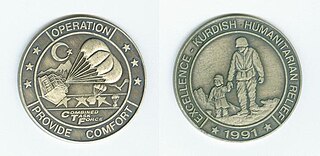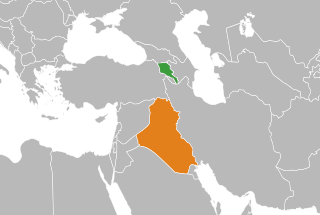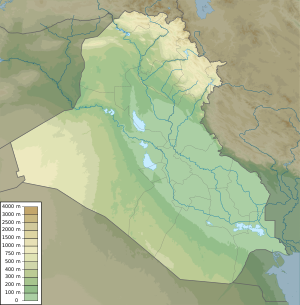
Under the Arab Socialist Ba'ath Party, Iraq's human rights record was considered one of the worst in the world. Secret police, state terrorism, torture, mass murder, genocide, ethnic cleansing, rape, deportations, extrajudicial killings, forced disappearances, assassinations, chemical warfare, and the destruction of the Mesopotamian marshes were some of the methods Saddam Hussein and the country's Ba'athist government used to maintain control. Saddam committed crimes of aggression during the Iran–Iraq War and the Gulf War, which violated the Charter of the United Nations. The total number of deaths and disappearances related to repression during this period is unknown, but is estimated to be at least 250,000 to 290,000 according to Human Rights Watch, with the great majority of those occurring as a result of the Anfal genocide in 1988 and the suppression of the uprisings in Iraq in 1991. Human Rights Watch and Amnesty International issued regular reports of widespread imprisonment and torture.

Operation Provide Comfort and Provide Comfort II were military operations initiated by the United States and other Coalition nations of the Persian Gulf War, starting in April 1991, to defend Kurdish refugees fleeing their homes in northern Iraq in the aftermath of the Gulf War, and to deliver humanitarian aid to them. The no-fly zone instituted to help bring this about would become one of the main factors allowing the development of the autonomous Kurdistan Region.

Zakho, also spelled Zaxo is a city in the Kurdistan Region, at the centre of the Zakho District of the Dohuk Governorate, located a few kilometers from the Ibrahim Khalil border crossing. Zakho is known for its celebrations of Newroz.
Avzrog is a village in Dohuk Governorate in Kurdistan Region, Iraq. It is located in the district of Simele.

Iraqi Armenians are Iraqi citizens and residents of Armenian ethnicity. Many Armenians settled in Iraq after fleeing the 1915 Armenian genocide. It is estimated that there are 10,000–20,000 Armenians living in Iraq, with communities in Baghdad, Mosul, Basra, Kirkuk, Baqubah, Dohuk, Zakho and Avzrog.

Duhok Sports Club is an Iraqi professional sports club, based in Duhok, Kurdistan Region, Iraq. Founded in 1970, the club competes in the Iraq Stars League, and also fields a team in the Kurdistan Premier League. Duhok SC's biggest rivals are also their neighbours Zakho, always producing the most passionate and fierce matches every season, with whom they contest the "Badinan Derby".

The 1991 Iraqi uprisings were ethnic and religious uprisings against Saddam Hussein's Ba'athist regime in Iraq that were led by Shia Arabs and Kurds. The uprisings lasted from March to April 1991 after a ceasefire following the end of the Gulf War. The mostly uncoordinated insurgency was fueled by the perception that Iraqi President Saddam Hussein had become vulnerable to regime change. This perception of weakness was largely the result of the outcome of the Iran–Iraq War and the Gulf War, both of which occurred within a single decade and devastated the population and economy of Iraq.

Zakho Sport Club, also spelled as Zaxo Sport Club, is an Iraqi professional sports club based in Zakho, Kurdistan Region, Iraq.

The Battle ofSulaymaniyah was one of the greatest battles fought during the 1991 uprisings in Iraq. Sulaymaniyah, a mostly Kurdish city with a population of over 100,000, was the first to be liberated by the rebels and the last to fall back to the Iraqi army.

The First Iraqi–Kurdish War, also known as the September Revolution, was a major event of the Iraqi–Kurdish conflict, lasting from 1961 until 1970. The struggle was led by Mustafa Barzani, in an attempt to establish an independent Kurdistan. Throughout the 1960s, the uprising escalated into a long war, which failed to resolve despite internal power changes in Iraq. During the war, 80% of the Iraqi army was engaged in combat with the Kurds. The war ended with a stalemate in 1970, resulting in between 75,000 to 105,000 casualties. A series of Iraqi–Kurdish negotiations followed the war in an attempt to resolve the conflict. The negotiations led to the Iraqi–Kurdish Autonomy Agreement of 1970.

The Iraqi–Kurdish conflict consists of a series of wars, rebellions and disputes between the Kurds and the central authority of Iraq starting in the 20th century shortly after the defeat of the Ottoman Empire in World War I. Some put the marking point of the conflict beginning to the attempt by Mahmud Barzanji to establish an independent Kingdom of Kurdistan, while others relate to the conflict as only the post-1961 insurrection by the Barzanis.

The 2011 Duhok riots refers to riots which began on December 2, 2011 in the Duhok Governorate, Iraq. They were instigated by Friday prayers' sermons by Ismail Osman Sindai, a Kurdish imam, calling for attacks against stores selling alcohol and massage parlours in Zakho. The riots soon developed into the looting and burning down of properties in other towns in the governorate, causing four million dollars of damage.
Faysh Khabur is a town on the northwestern edge of the Kurdistan Region in the Zakho District of Duhok Governorate of Iraq. It is named after the Khabur River on which the town is built, and lies on the confluence of the Tigris and Khabur river. The town is in a very strategic location, as it lies just 4 km south from the Semalka Border Crossing with Syria as well as being close to the border with Turkey.
The Battle of Basra was fought in the beginning of the 1991 Iraqi uprisings following the Gulf War. The battle started after demoralized troops throughout Iraq began to rebel against Saddam Hussein's Ba'athist regime, in particular after a tank driver in Basra fired at a public portrait of Saddam Hussein. Basra became a chaotic battlefield between military defectors and Republican Guard, with most of the fighting taking place at close quarters. Most of Basra had been retaken by mid March, but rebels in parts such as Tanuma managed to hold out until mid April. After Ba'athist forces had regained control, they engaged in a crackdown against civilians and suspected supporters of the uprising.
The Battle of Tuz Khormato was fought during the 1991 uprisings in Iraq between the Peshmerga and Iraqi forces. Tuz Khormatu, a predominantly Turkmen town, was one of the most southernly towns to fall under the control of the Peshmerga then retaken by Iraqi government forces.
The Battle of Kirkuk was one of the biggest battles of the 1991 uprisings in Iraq.
The Battle of Saddam City occurred in March 1991 as part of the wider anti-Saddam uprisings across Iraq, although the uprising in the Saddam City district of Baghdad was far more limited in scale than the kind of uprisings seen in southern Iraq. In response to the unrest in Saddam City, Saddam Hussein's son Qusay Hussein led a siege of the district, with dissent being repressed. Baghdad as a whole remained quiet, with the capital serving not as a center for the uprisings, but as a staging post for the government counter-offensive.

The 1991 Altun Kupri massacre occurred on 28 March 1991 in the Turkmen town of Altun Kupri, Kirkuk Governorate, Iraq. The massacre targeted Turkmens, in particular males, both children and adults alike, and was organized by security forces affiliated with Saddam Hussein's army. It came as a result of curbing the 1991 uprising in the dissident areas in the north and south of the country.

The following is a timeline of the history of the city of Zakho, Iraq.
On 20 July 2022, the Barakh tourist resort in the Zakho District of the Kurdistan Region of Iraq was shelled with four or five artillery strikes. The attack killed nine civilians, including two children, and injured 33 others.













